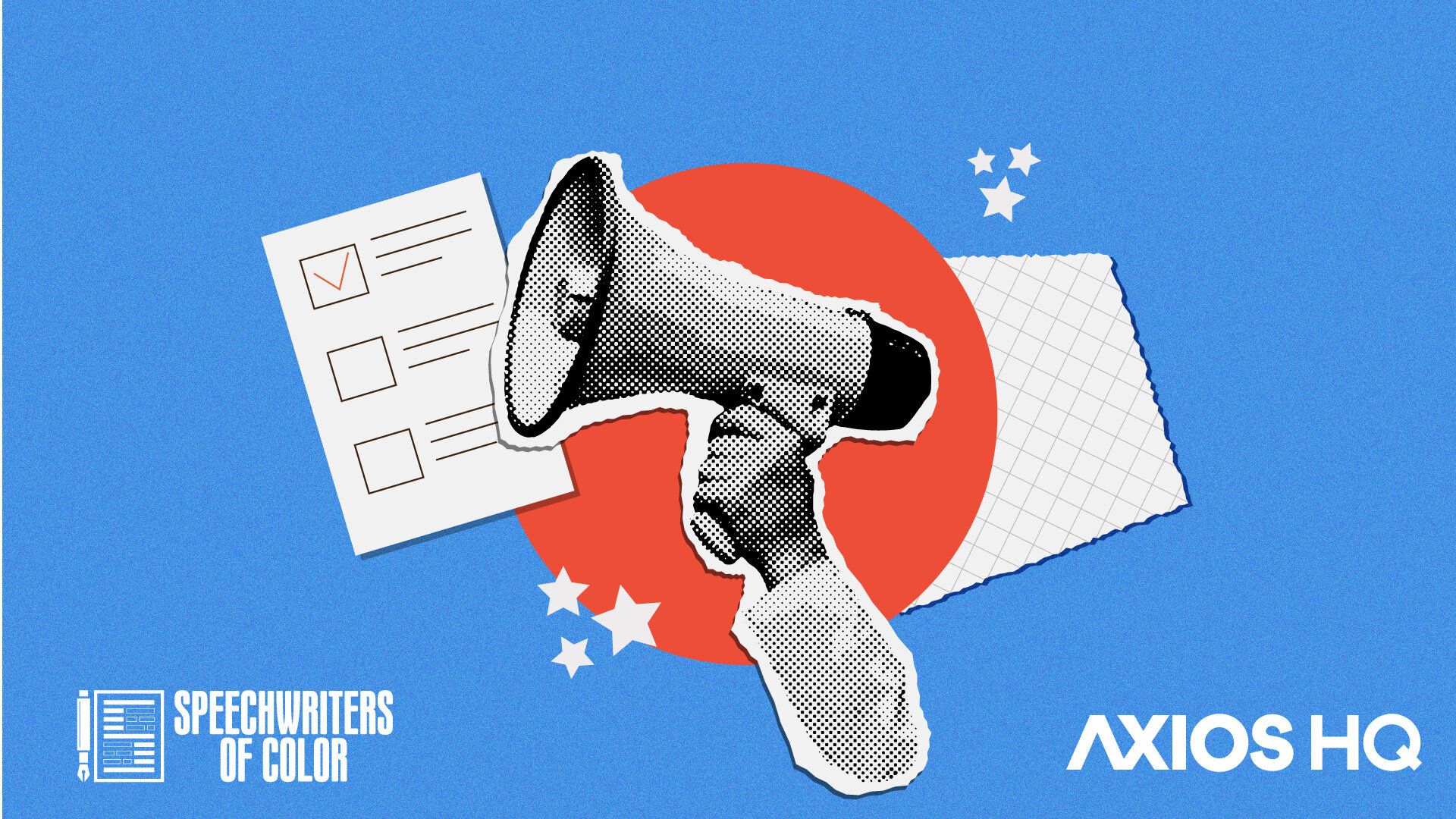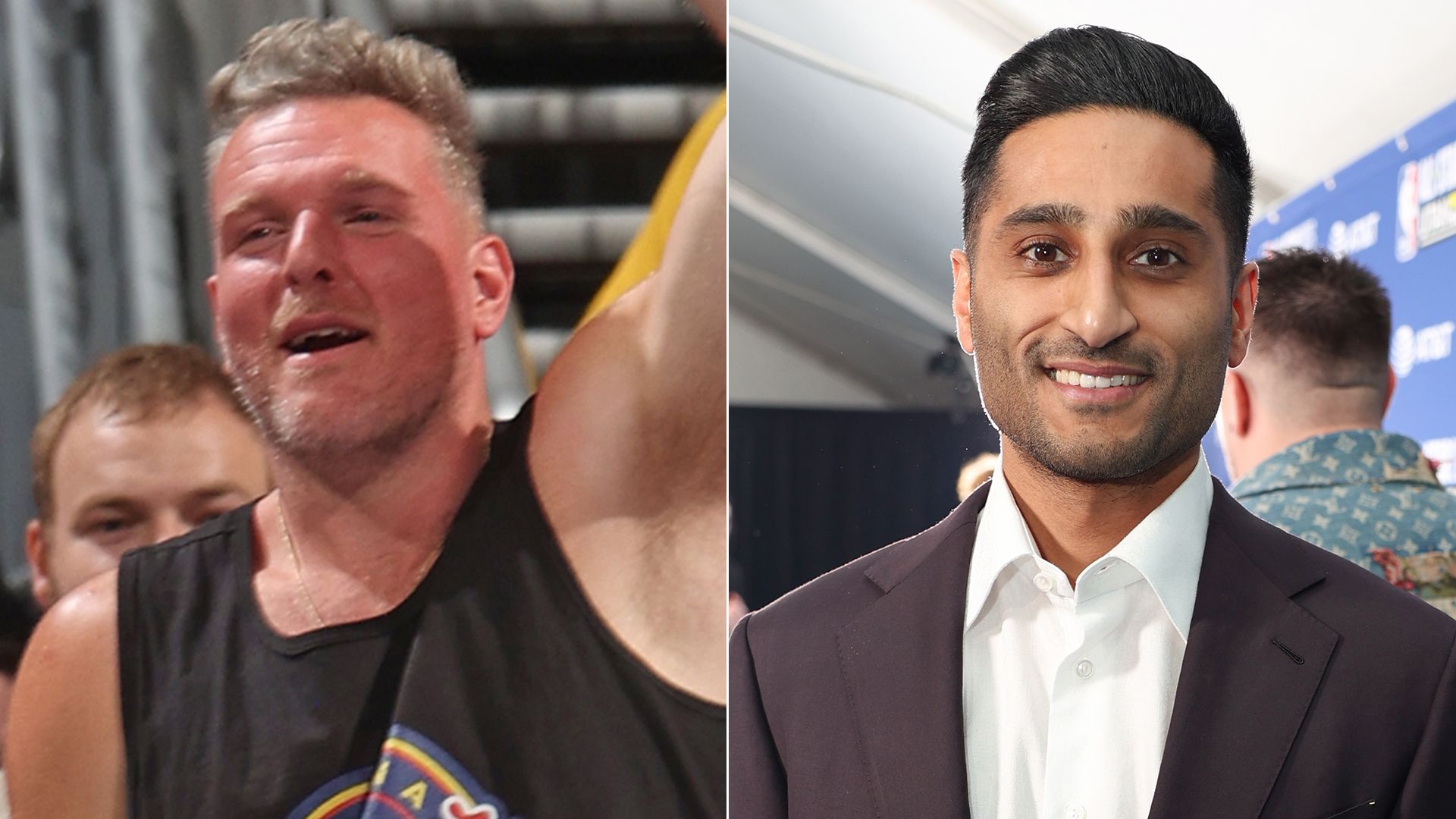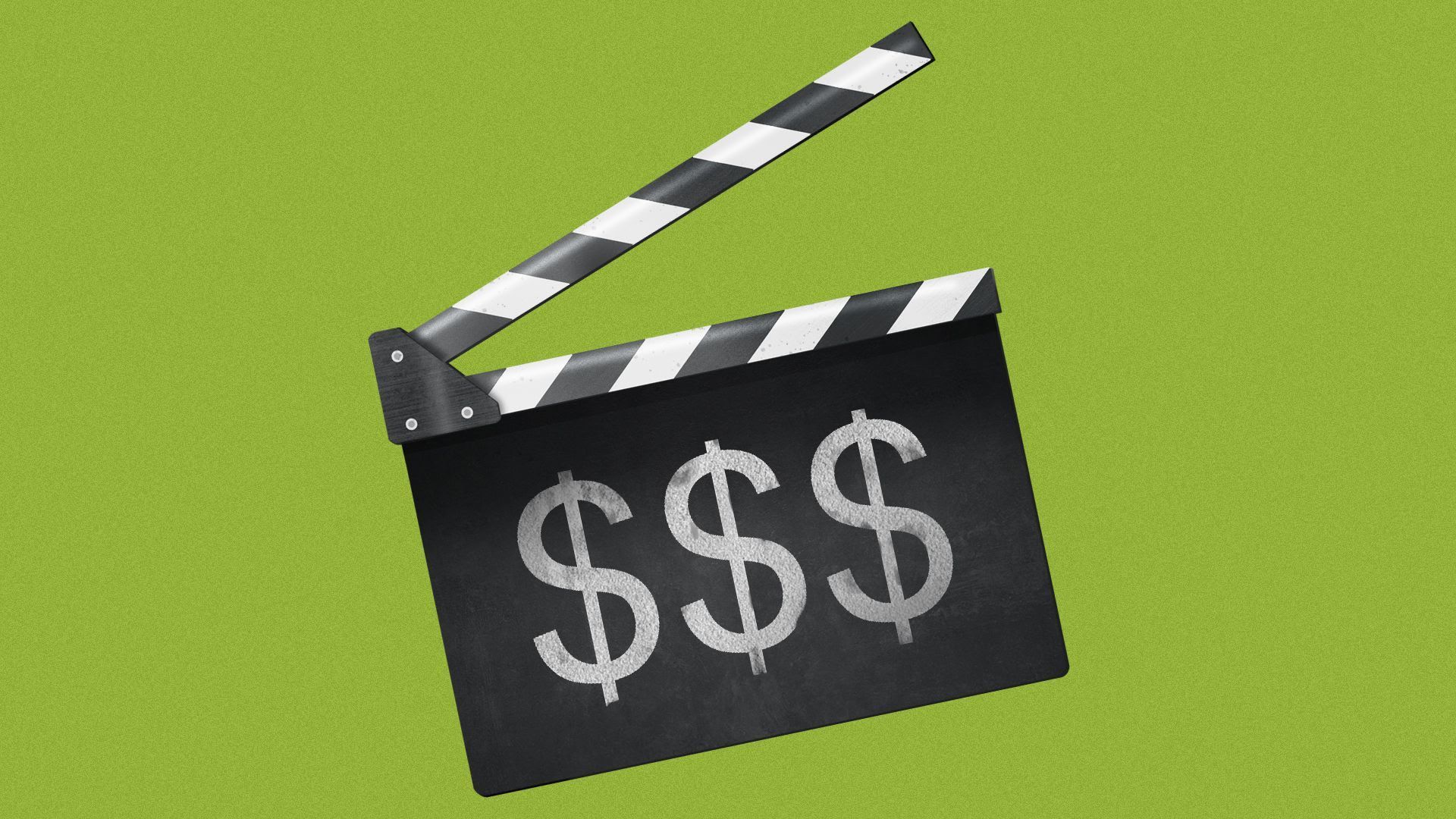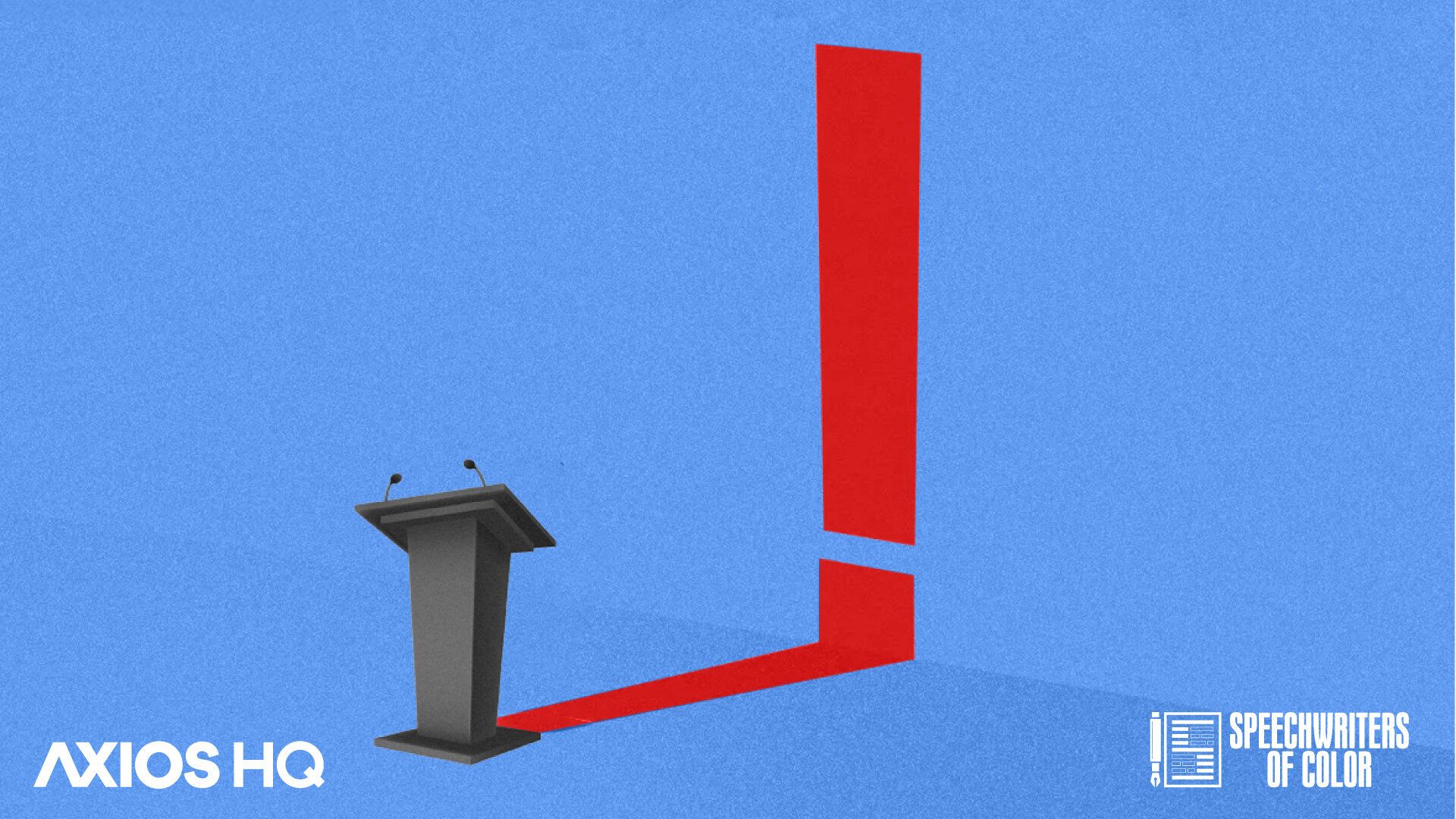| | | | | | | | | | | Axios Media Trends | | By Sara Fischer · Oct 15, 2024 | | Today's Media Trends, copy edited by Sheryl Miller, is 1,919 words, a 7½-minute read. Sign up. 🗓️ Situational awareness: Axios BFD, Dan Primack's annual dealmakers summit, returns to NYC on Oct. 22. - I'll be interviewing Dude Perfect's Coby Cotton and its new CEO Andrew Yaffe, as well as Washington Spirit owner Michele Kang.
- Dan will interview NCAA president Charlie Baker, New York Gov. Kathy Hochul and more. Request an invite here.
| | | | | | 1 big thing: ⏰ Bracing for chaos | | |  | | | AP executive editor Julie Pace and deputy Washington bureau chief Steven Sloan look over the shoulder of political editor Ashley Thomas as she files the first AP news alert on Super Tuesday, March 3, 2020. Photo: Jon Elswick/AP | | | | The Associated Press will have more than 5,000 people working on election night, a new record in the company's 178-year history of calling elections, executive editor Julie Pace told Axios. Why it matters: Thousands of newsrooms in the U.S. and globally rely on AP's data to cover the elections. - AP accurately called 100% of the elections for U.S. House, Senate, gubernatorial and presidential races in 2020. But for much of the public, particularly Republicans, confidence in vote counting has waned.
Driving the news: Ahead of 2024, the not-for-profit news cooperative faces new challenges related to trust and misinformation. - Specifically, determining the number of uncounted votes in any given race has become more difficult, due to a surge in mail-in ballots, a popular practice left over from the COVID era.
- The absence of race calls while votes are still being counted is where misinformation can flourish, Pace said.
Zoom in: To get ahead of false narratives, Pace said AP is doubling down on transparency efforts. - Live video will be "huge," she noted.
- AP will have more than 30 live video shots from every battleground state and more. It will feature live video from voting locations in over 11 key states.
By the numbers: AP will count the vote in 7,000 state, local and federal election races this November, the majority of which (roughly 5,000) has more than one candidate on the ballot. - It will make as many as 21,000 race updates per hour.
Zoom out: The stakes are higher than ever for AP, which has seen its customer base for election data grow by 30% following the 2020 election. - AP's election night map, which shows real-time updates of races being called, will be translated into 18 languages this year, amid an uptick in interest from international newsrooms.
Go deeper |     | | | | | | 2. Media trust hits new low | | | ![]() Data: Gallup; Chart: Axios Visuals The percentage of Americans who say they have a great deal or a fair amount of trust in the mass media has fallen to a record low, according to a new Gallup survey. Why it matters: Media trust had started to rebound following the 2016 election, but those gains have been wiped out amid growing political partisanship. The big picture: Media is now the least-trusted civic and political institution surveyed by Gallup. ![]() Data: Gallup; Chart: Axios Visuals Reality check: The Trump era drove record levels of division between Republicans and Democrats regarding media trust, but that gap is starting to close slightly amid trust declines from Democrats and Independents. - Trust in media reached a record low this year (27%) among Independents and a near-record low (54%) among Democrats.
What to watch: Trust declines in media have been driven largely by younger populations. Over the past two years, trust in media has hit a record low (26%) among those ages 18–29. - The age gap has become especially prominent among Democrats, with 31% of Democrats aged 18–29 saying they have a great deal or a fair amount of trust in the media versus 74% of those aged 65 and older.
Share these charts |     | | | | | | 3. Scoop: Spotify audiobook #s | | |  | | | Illustration: Sarah Grillo/Axios | | | | Spotify is paying hundreds of millions on an annualized basis to audiobook publishers, according to internal figures obtained by Axios. - The company has also doubled the number of titles available to premium members in the past few months from 150,000 to 300,000.
Why it matters: The figures, confirmed by a Spotify spokesperson, suggest Spotify's entry into the audiobook market is helping to significantly grow the pie for audiobook publishers at large. - Without Spotify, the audiobook industry in the U.S. grew 14% in unit sales between Q4 2022 and Q4 2023, according to Bookstat.
- With Spotify, it grew 28%.
By the numbers: While there's been debate around how much authors themselves (not their publishers) are benefiting from that boom, consumers are clearly taking advantage of the expanded access. - The company has exceeded its early expectations in terms of engagement, with tens of millions of users listening to at least part of an audiobook à la carte or through their premium subscription since Spotify launched audiobooks in 2022, according to internal data.
Zoom in: Early success in audiobooks is giving Spotify confidence to expand quickly to new markets, Spotify's head of music and audiobooks David Kaefer told Axios. - The company said Monday that premium subscribers in France, Belgium, Netherlands and Luxembourg will have access to audiobooks.
Between the lines: Strong engagement also suggests Spotify's audiobook strategy is seeing success as a premium feature, rather than an ad-supported product. - Right now, "Advertising is not really a model that we're thinking about for audiobooks," Kaefer said.
Zoom out: Spotify's audiobook push follows a years-long foray into podcasting that's only now starting to become profitable. But audiobooks aren't expected to weigh on costs as much upfront. - The cost structure of audiobooks, CEO Daniel Ek told Axios in July, is also more variable than podcasts, "which helps the gross margin profile as we're growing."
The big picture: Spotify's entry into the audiobook space is already putting pressure on competitors. - As of Q4 2023, Spotify had a roughly 11% share of all audiobook units sold in the U.S., according to Bookstat, putting it ahead of Apple, but behind Amazon's Audible, which has long been the dominant player in the space..
Go deeper |     | | | | | | A message from Axios HQ | | An executive guide to internal comms in an election year | | |  | | | | Every statement feels political in an election year. To keep the business focused, leaders need to know how personal politics are for their workers, offer the support employees need to get through the inauguration, and prep managers for the important role they'll play in it. 👉 Download our internal comms guide to the election | | | | | | 4. 🏀 ESPN's Shams plan | | |  | | | Pat McAfee (left) and Shams Charania. Photos: Nathaniel S. Butler and Brandon Todd/NBAE via Getty Images | | | | The hiring of NBA scoop machine Shams Charania represents a broader effort at ESPN to poach more nontraditional journalists that resonate with younger fans, ESPN content president Burke Magnus told Axios. Why it matters: "We're getting into a world where certain individual circumstances are going to drive what's possible and what's not possible," Magnus said, referring to talent negotiations. Catch up quick: Charania, 30, joined The Athletic from Yahoo Sports in 2018. He gained notoriety early in his career by breaking major news on basketball trades, draft picks and staffing changes. - The news last week that Charania will replace longtime lead NBA reporter Adrian Wojnarowski didn't come as a huge surprise, given how much other ESPN talent, notably viral YouTube sports analyst Pat McAfee, had been stumping for him.
The big picture: The hiring of McAfee and now Charania shows how much ESPN is willing to experiment with new content models and take risks to survive. - As the media world becomes more fractured, "we're actively looking for more people to add to that mix that have the skill set of both Pat and Shams," Magnus said.
Zoom in: While Charania is considered much more of an influencer and analyst compared to the traditional reporter, he will still be embedded fully in ESPN's newsroom, reporting directly to Lauren Reynolds, ESPN's executive editor of ESPN Digital. - "He's gonna be a hybrid," Magnus said.
- Charania will contribute to ESPN's breaking news coverage online and will appear on ESPN studio shows such as "NBA Today" and "NBA Countdown," He'll also appear on some of ESPN's more entertainment-focused programs, such as "The Pat McAfee Show."
Between the lines: While Magnus couldn't specify the ins and outs of Charania's contract commercially, he acknowledged that ESPN and the industry are "in between two worlds at the time." - "We're trying to be as flexible as possible," he said.
- At The Athletic, Charania was allowed to participate in commercials.
Reality check: Newsrooms for years have hired analysts and commentators to appear alongside their journalists on television, online and in print. But most have had to create new titles to help viewers distinguish straight news from perspective. - Magnus said ESPN will probably take a look at the way it's titling its talent to be transparent. "I'm not sure how much fans care about that, necessarily, but you don't want to mislead fans," he said.
|     | | | | | | 5. Paramount bidder claims its offer was wrongly spurned | | |  | | | Illustration: Annelise Capossela/Axios | | | | An investment group interested in buying Paramount Global claims Paramount's special committee violated its fiduciary duty to shareholders by neglecting to consider its $8.5 billion bid for the company, according to a letter from the group's lawyers to Paramount's general counsel obtained by Axios. The big picture: The Paramount sale process has been riddled with complicated legal challenges and drama. - Barring any unexpected regulatory issues, Paramount's July agreement to merge with Skydance Media in an $8.4 billion deal is poised to move forward.
Zoom in: The bidding group, called Project Rise Partners (PRP), argues its bid is superior to Skydance's from a financial perspective, offering more cash per share to both Class A and Class B shareholders in Paramount. - PRP's bid is funded mostly by wealthy individuals in media, real estate, telecom, hospitality and finance.
Reality check: Typically, a publicly traded corporation is legally bound to consider any legitimate offer of value that could benefit shareholders — but there are plenty of rationales a board can use to dismiss an offer, too. State of play: Lawyers representing PRP's bid argue in the Oct. 8 letter that their client's offer should have been considered and that the special committee's excuse for dismissing it due to timing doesn't hold. - The special committee suggested in a statement that an extension to a go-shop provision that was part of its merger agreement with Skydance only applied to a $6 billion bid from an investment group led by billionaire Edgar Bronfman Jr.
Zoom out: The letter includes materials from PRP's bid, including a strategic plan for Paramount. - Its strategy includes launching a constellation of satellites to better distribute Paramount's content and to make real estate investments in the company that would appeal to tourism.
Go deeper |     | | | | | | 6. Israel-Hamas war still roiling newsrooms | | |  | | | Photo illustration: Brendan Lynch/Axios. Photos: Ahmed Ebu Saud/Anadolu Agency/Getty Images, Qian Weizhong/VCG via Getty Images, and Spencer Platt/Getty Images | | | | More than a year after the outbreak of the Israel-Hamas war, conflict over editorial standards is still causing chaos in U.S. newsrooms. Why it matters: American media has historically sided with Israel during times of geopolitical tension in the Middle East. But the war with Hamas has tested that precedent. Driving the news: Paramount Global chair Shari Redstone publicly condemned CBS News' handling of a terse interview "CBS Mornings" co-anchor Tony Dokoupil had with author Ta-Nehisi Coates about the Israel-Palestine conflict. - "We made a bad mistake," Redstone told me on stage in New York last week.
- The comments prompted a response from Paramount co-CEO George Cheeks, who — in a note to staff — stood by CBS News' leadership.
Zoom out: The war with Hamas is forcing newsrooms to reconcile with a new political reality in which a growing number of Americans, especially younger people, say they are sympathetic to Palestine over Israel. - On Sunday, Semafor reported that Condé Nast's high-profile head of diversity quietly stepped down amid allegations of antisemitism and divisive arguments about the war in Gaza.
Go deeper: How Gaza Changed the Rules for Newsrooms |     | | | | | | 7. 🎥 1 fun thing: A Legendary expansion | | By Tim Baysinger | | |  | | | Illustration: Sarah Grillo/Axios | | | | Legendary Entertainment plans to pursue multiple M&A opportunities following its buyout of Chinese conglomerate Dalian Wanda Group's majority stake in the studio, CEO Josh Grode tells Axios. Why it matters: Legendary is one of the few Hollywood studios on solid financial footing and remains a reliable box office hitmaker. The big picture: Grode says Legendary will be "opportunistic" when it comes to acquisitions and will not stray outside its wheelhouse of being a content producer. - One area Legendary likely won't look at is AI because it's already become oversaturated. "Everybody's kind of in AI," he says.
Driving the news: Wanda sold off its 60% stake in the studio behind the "Dune" and "Godzilla" franchises yesterday. - Legendary bought out Wanda using its own cash on its balance sheet.
- Legendary will own about half the company, and private equity giant Apollo will own the other half. Apollo acquired a minority stake in 2022 for $760 million.
What to watch: For Legendary, buying out Wanda also removes a regulatory barrier for bigger deals. |     | | | | | | A message from Axios HQ | | A note for leaders, in an election year | | |  | | | | Every statement feels political in an election year. Whether you're having a tough conversation or keeping a pulse on how people are doing when we move past the election — the way you engage, listen, and lead will set a tone for how they follow. 👉 Download our internal comms guide | | |  | | Dive deeper into the future of media | | | |

0 comentários:
Postar um comentário